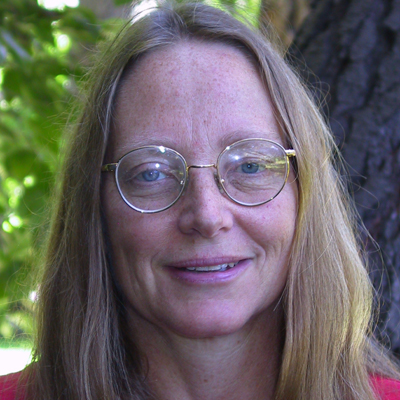Defects in the pathways that normally replenish specialized cells in our bodies can lead to cancer
There are many cells in our bodies that only last a short time, for example red blood cells, skin, and the lining of the gut. Because these cells are so specialized, they cannot divide. However, they must constantly be replenished from less specialized precursor cells. This is done by a sophisticated mechanism in which adult stem cells proliferate then differentiate to replace cells that have died or are damaged. Dr. Margaret Fuller, Professor of Biology and Genetics at Stanford University School of Medicine, studies how specialized cells are produced from adult stem cells in the body. Her research is revealing fundamental cellular and molecular mechanisms that regulate how tissues are maintained and repaired. In addition, as many human cancers, including, breast, lung, prostate, and colon cancer arise in adult stem cell lineages, understanding the rules that strictly govern how the stem cells become activated to divide, how much their daughter cells proliferate, and how those daughter cells eventually stop dividing and differentiate into the correct specialized cells may be important for understanding and possibly treating cancer.
Dr. Fuller and her team are using powerful genetic and molecular tools available in the laboratory fruit fly Drosophila to discover how the differentiated male germ cells, the sperm, are produced throughout reproductive life, as a model system to study adult stem cell lineages in vivo. With an interest in the whole process, from how the stem cell niche works, to how proliferation is controlled, to how the gene expression program for terminal differentiation is turned on, Dr. Fuller and her laboratory group seek to understand the key regulatory points in the process of producing specialized cells from adult stem cell precursors. Dr. Fuller’s discoveries in this system are providing important insights into adult stem cell biology, reproductive biology, and regenerative medicine. The genes and mechanisms that she and her team discover are revealing causes of male infertility and could lead to new targets for male contraceptive strategies.
Current research includes:
-
Regulation of Adult Stem Cell Self-Renewal and Differentiation by the Niche: Dr. Fuller’s lab pioneered the study of male germ line stem cells (GSCs) starting in 1992. Recognizing that to understand the biological mechanisms involved, scientists must understand what is happening in the body, in the context of normal anatomy, her work has proven both revolutionary and successful. Her team’s most recent findings in this area revealed that the somatic cyst cells that enclose the germ cells play key roles in at least two different decision points in specifying that germ cells progress to differentiation. Dr. Fuller’s discoveries in the Drosophila system have set paradigms for research on mammalian adult stem cells in vivo.
-
Cancer: Switching from cell proliferation to differentiation is a key regulatory point in adult stem cell lineages. Failure to stop cell division and turn on terminal differentiation can lead to cancer: indeed, several cancer types, including some leukemias and glioblastomas, have been shown to originate from intermediates in their stem cell lineage that fail to stop dividing when they should. Dr. Fuller’s lab is discovering the genes and molecular mechanisms that stop cell proliferation and turn on differentiation in the male germ line adult stem cell lineage. They have recently discovered that similar genes control the same switch from proliferation to onset of differentiation in mammals. These exciting results point toward a deeply conserved fundamental mechanism involving translational control underlying the signature event in germ cell differentiation, the switch from spermatogonial cell proliferation to entry into meiosis and differentiation,.
-
Meiosis I Maturation Arrest Male Infertility: Dr. Fuller and her team have discovered mutations in more than ten Drosophila genes that cause a male sterile phenotype similar to one of the most common forms of human male infertility, meiosis I maturation arrest. Dr. Fuller and her trainees have shown that many of these genes encode key regulators of the transcription program for male germ cell differentiation. By studying Drosophila male sterile mutants, Dr. Fuller and her team hope to identify and understand genes and molecular pathways that may underlie human male infertility.

Bio
Dr. Margaret Fuller has always been fascinated by learning about how things work. She credits her father and her 7th and 9th grade general science teacher, Mr. Kachunis, with piquing her interest in science. As a high school student, she enjoyed her physics course so much that she decided to enter college as a Physics major. To earn book and spending money as a freshman, she took a job sorting pipettes and making media in a biology lab, immediately breaking a 2 liter flask of hot agar all over the lab floor and cabinets the first day on the job. After taking an introductory biology course as a college sophomore, she worked the following summer doing independent research in one of the professor’s lab and became hooked on the process of discovery. During that summer, she realized that in biology, one could discover something new about the world that no one else knew, using just “your mind, some test tubes, and a water bath”. It was this moment of seeing something for the first time that Dr. Fuller decided she would continue to pursue biology research professionally.
Starting her independent research career in the 1980s, Dr. Fuller had the privilege of being a part of the amazing flowering that has led to our current understanding of the molecular and genetic mechanisms that underlie developmental biology. As a young scientist, she was able to participate and teach as the field learned how embryos are built and how cells talk to one another. Dr. Fuller is fascinated by the regulatory circuitry that guides how living animals develop and how specialized cells differentiate from precursors in the adult stem cell lineages that maintain our bodies. She describes the way in which “the sheer beauty and elegance of these processes,” captivates and motivates her to continue research. Her ambition is to some day be able to draw out the wiring diagram of how male gametes differentiate from much less specialized, diving precursor cells. The biggest thrill for her is when her data lead to a new model that ties together a series of previously unconnected-seeming observations to explain how a process might work.
Aside from research, in her free time, Dr. Fuller loves the outdoors, on land and on or in the water. She enjoys hiking in the mountains and scuba diving in the sea. Having traveled all over the world, including the Galapagos Islands, the Great Barrier Reef, and to different parts of Africa, Dr. Fuller enjoys meeting people from different cultures. In addition to enjoying the new experiences that accompany international travel, Dr. Fuller has also actively participated in international service. Her latest service project involved accompanying an eye surgeon in the operating room for 8-12 hours each day, seven days in a row, as he operated on cataracts to restore vision to patients in southern Ethiopia. When not in the lab or traveling, Dr. Fuller spends much of her time enjoying her family, especially when she gets the chance to spend time with her two children.


